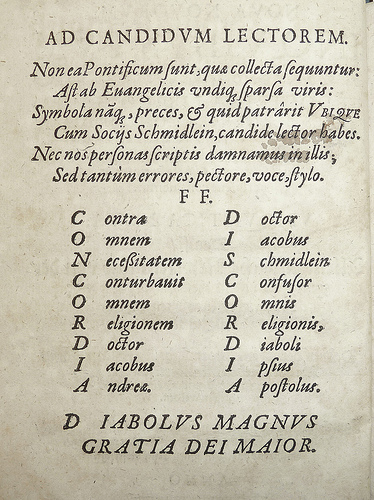Episodia 1.4: Survival Archetypes
Whether it’s in the wake of a zombie apocalypse in “The Walking Dead,” on an electro-magnetic island in “Lost,” or on Capitol Hill in “House of Cards,” any television show that portrays the fight for survival always seems to need the same kinds of characters. But these archetypes don’t have to be formulaic; instead they can provide writers with opportunities to fashion new wine from old wineskins. Since most narratives hinge on some form of literal or metaphorical survival, let’s explore how these archetypes are employed in both traditional and unconventional frameworks so that we might better understand how our own characters are functioning in the conflicts and worlds we’ve created.
The Shepherd
In short: a good man with a savior complex. The prevalent need for a desert-island doctor shoots Jack Shephard to the head of the pack on “Lost.” Sheriff’s Deputy Rick Grimes leads his band of survivors in “The Walking Dead” thanks to his badge and his big duffel bag of guns. What most compels us about these characters, however, is that pre-crisis, both Rick and Jack adhered to a morality that won’t fly in the post-crisis world. Add the archetypal “man vs. himself” battle to a “man vs. nature” construct, and a multi-layered plot line results. And what about “House of Cards?” The intriguing twist on this survival archetype is that any kind of moral governance has been squelched, and the entire plot turns around this absence rather than its presence.
The Hustler
Though this term might earn some negative connotations in the world as we know it, in a survival scenario a hustler knows how to stay alive. We admire them for their sheer ability to thwart ruin, even if we question their methods. Take Shane in “The Walking Dead” or Sawyer from “Lost.” These two hotheads capture our hearts in the moments when they act beyond their own self-interest. Love always seems to be the hustler’s undoing and his making, doesn’t it? As for Frank Underwood, Majority Whip and protagonist/antagonist in “House of Cards,” he’s brought to his knees only by his own ambition, his most dirty and careless of lovers.
The Beloved
Of course the Shepherd and the Hustler must war for the heart of a beautiful young woman (we audiences are so predictable). Cue Lori, mother of Rick’s child and object of Shane’s affection, and Kate, who volleys herself over the Jack-Sawyer net throughout most seasons of “Lost.” “House of Cards” gives this archetype a nice little kick in the pants, as none of the females—not Frank’s wife or his mistress—will be shoved into this role. Instead, the beloved here is an object rather than a person: the ribs at Freddy’s rib joint. They are the only thing that gives Frank Underwood genuine joy, they offer an olive branch to a crowd of angry protestors, and they turn into a Trojan horse when Frank schemes for the Vice Presidency over a plate of them. Sure sounds like a “beloved” to me.
The Hunter
Speaking of ribs, people gotta eat. For an emerging society to survive, someone has to be willing to kill the living, which is why the whole camp in “The Walking Dead” remains in Daryl Dixon’s debt, whether they like him or not. Much like Sayid on “Lost,” Daryl is quick with a weapon and smart under pressure.
“House of Cards” has no food shortage, and yet the characters often ask to be fed. Political sustenance consists of information and special favors, and the expert marksman here is Frank Underwood’s wife Claire. She’ll ax her entire staff, head-hunt for the best employees, and deceive her husband and foil his plans in order to feed her charity organization. She’ll play nice when it suits, but don’t expect a lioness to go hungry for long.
The Watchman-Prophet
Somebody has to keep an eye out for approaching zombies, and who better than Dale, perched on top of his RV with his binoculars? And don’t forget John Locke, who spends hours watching the island tide advance and recede, or Frank Underwood’s minion Doug Stamper, who is always ready to perform Frank’s shady bidding.
What binds these characters is that their constant observations allow them to “see” things before they occur. Dale pinpoints threats in camp, even when others disagree. Locke suspects something’s “up” with the island long before anyone else. And Doug Stamper keeps his finger on the pulse of congressional votes not yet cast, secrets not yet told, and alliances not yet broken. An axiom for the connection between this archetype and its audience: When the watchman sets forth a prediction, we’ll wait to see if it comes true.
The Screw-Up
Congressman Peter Russo is the easily identifiable “House of Cards” screw-up. His penchant for prostitutes and cocaine land him in Frank Underwood’s debt, and the plot thickens when Russo refuses to act as Frank’s puppet. If “Lost” had been a reality show, its tagline would have been: “Watch what happens when we put a bunch of screw-ups on an island.” Each of these characters had major mistakes hounding them before the plane crash, and the island becomes a place where they find opportunities to atone for their regrets. And you won’t find any screw-ups in the cast of “The Walking Dead.” Instead, you’ll find them in the dozens of extras. Screw-ups get bit, they die, and then they come back to life as zombies.
The Emissary
In any fight for survival, a connection to the outside world often brings promise of rescue. Accordingly, the role of emissary is as essential as it is corrupt when it falls into untrustworthy hands. Take Ben on “Lost,” for example. He’s the only man who knows how to leave the island, and he wields this information to maintain power. Or consider Zoe Barnes, an up-and-coming reporter in Washington D.C., who sacrifices her own integrity in order to break a big story. In the realm of the zombie apocalypse, securing information isn’t as necessary as securing an escape route. Enter Glenn, a former pizza delivery guy, who slips in and out of abandoned department stories, scales tall buildings, and scours drainage tunnels in order to elude a zombie onslaught. Another unexpected joy of the survival scenario: sometimes the smallest man wins.
So there you have it. Does this ring true? What archetypes did I overlook? Feed me.


